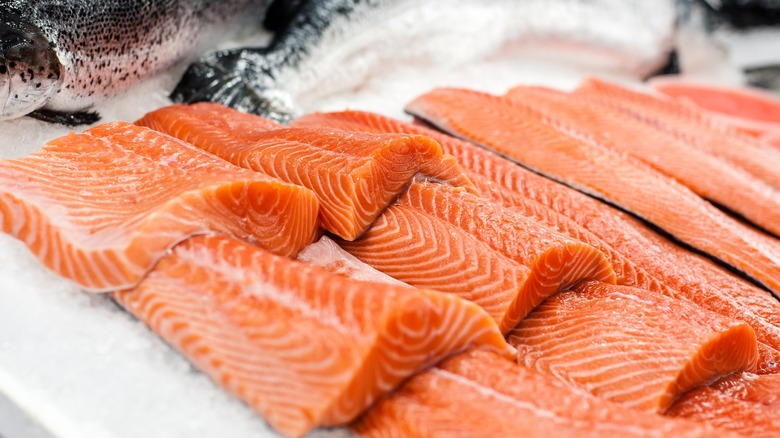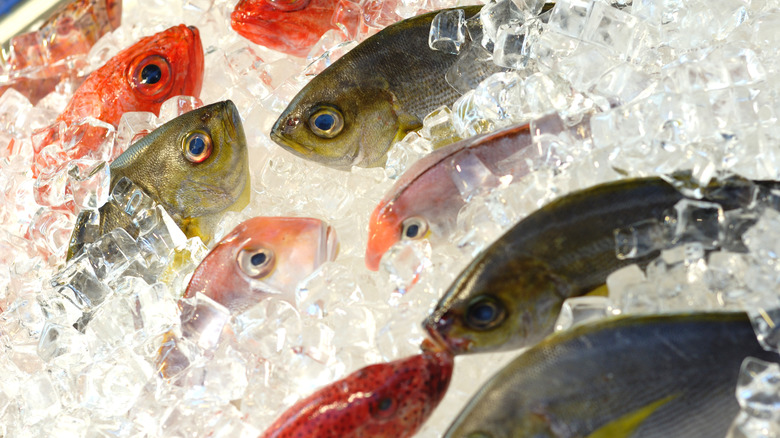The Fresh Fish You're Buying Might Have Actually Been Frozen First
If you love seafood, chances are you've wandered into the fresh fish vs. frozen fish debate at some point. Some people claim fresh fish is the only way to go, that sub-zero temperatures ruin everything, and that you're not going to get the most you can out of your meal if it's ever seen the inside of a freezer. Others insist that frozen food is perfectly good, is an excellent way to make more kinds of food more cheaply available, and that looking down on people who rely on frozen fish is kind of classist. Here's the thing, though — the entire discussion is a false dichotomy.
Unless you live near a coastline, it's almost certain that the fish you're buying has been frozen at some point during the process of bringing it to your supermarket counter. The reason is simple — it has to be for the fish to be available at all.
Frozen seafood is often higher-quality than the fresh stuff
Obviously, fish caught that day and transported straight to your table is going to be the best seafood you can possibly eat. That's true of any protein that's truly "fresh" in the sense that no time has passed since it came from the animal. But most people don't live close enough to a coastline to make that a reality, and yet grocery stores still offer "fresh" seafood. How is that possible?
It isn't, at least not by how you're thinking of the term. "Fresh" seafood is flash-frozen after being caught (just like "frozen" seafood), transported to stores, then unfrozen and sold as "fresh." If it weren't, there'd be no way to get salmon to, say, Pittsburgh before it started smelling extremely ripe. What this leads to is a paradoxical situation where frozen fish is actually more fresh than the "fresh" stuff. While fresh fish has been unfrozen for at least some period of time before you purchase it, frozen fish is thawed and immediately eaten.
Frozen fish is more than just as good as fresh fish; in inland areas, it's even better.
There are still things to look for when buying frozen fish
That being said, the freezing process isn't fool-proof. When you're buying frozen fish, you do need to make sure that there haven't been any hiccups along the way.
As with any frozen food, large ice crystal formations are a bad sign. It might mean the fish was frozen too slowly, leading to an inevitable drop in texture and flavor quality. You also want to make sure it's actually frozen, because if any part of it has thawed, the whole thing is going to be a problem.
There are convenience products that do produce a significant drop in quality, but frozen fish isn't one of them. If you live in Phoenix and you've been ordering "fresh" halibut, you might want to consider switching to the frozen stuff. In reality, it might be fresher than the "fresh" fish you've been buying.


